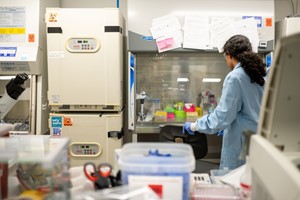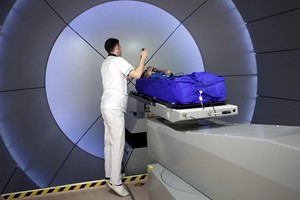High fasting glucose levels present a confounding characteristic of type 2 diabetes mellitus, posing a challenge for researchers seeking to understand the underlying mechanisms of this metabolic disorder. The liver's overproduction of glucose in insulin-resistant individuals remains a topic of intense scrutiny within the scientific community, with numerous unanswered questions persisting.
A recent review paper published in the esteemed journal Trends in Endocrinology & Metabolism provides a comprehensive overview of the latest advancements in deciphering this intricate process. Led by Professor Manuel Vazquez-Carrera, esteemed researcher at the Faculty of Pharmacy and Food Sciences of the University of Barcelona, in collaboration with the UB Institute of Biomedicine (IBUB), the Sant Joan de Deu Research Institute (IRSJD), and the Centre for Biomedical Research Network on Diabetes and Associated Metabolic Diseases (CIBERDEM), this study sheds light on crucial insights into glucose regulation.
Type 2 diabetes mellitus represents a growing global health concern, characterized by elevated circulating glucose levels stemming from inadequate insulin response. The implications of this condition extend beyond metabolic dysfunction, often leading to severe organ damage and contributing to a substantial burden on healthcare systems worldwide.
Central to the pathophysiology of type 2 diabetes mellitus is the hyperactivation of hepatic gluconeogenesis, the process by which the liver synthesizes glucose. While medications like metformin have traditionally targeted this pathway, recent research has unveiled novel therapeutic targets that offer promising avenues for intervention.
Professor Vazquez-Carrera's team has identified growth differentiation factor 15 (GDF15) as a key regulator of hepatic gluconeogenesis, presenting a potential target for pharmaceutical intervention. Additionally, the role of transforming growth factor-beta (TGF-β) in metabolic dysfunction-associated fatty liver disease (MASLD) underscores its significance in the progression of type 2 diabetes mellitus and related complications.
However, the complexity of hepatic gluconeogenesis necessitates a multifaceted approach to therapeutic development. Combining interventions targeting various factors, such as TGF-β, TOX3, and TOX4, holds promise for enhancing glycemic control and improving patient outcomes.
The study also delves into the enigmatic mechanisms of metformin, the cornerstone of type 2 diabetes management. Contrary to previous understanding, metformin's inhibition of mitochondrial complex IV, rather than complex I, emerges as a pivotal mechanism in reducing hepatic glucose synthesis. Furthermore, metformin's gut-mediated effects contribute to its anti-diabetic properties, highlighting the interconnectedness of metabolic processes.
In light of recent observations in COVID-19 patients, characterized by elevated glucose levels attributed to enhanced hepatic gluconeogenesis, the relevance of this research extends beyond traditional diabetic cohorts. Understanding the intricate interplay between viral infection and metabolic dysregulation underscores the urgency of continued investigation into glucose metabolism.
As researchers continue to unravel the complexities of glucose regulation in type 2 diabetes mellitus, the insights gleaned from this study pave the way for innovative therapeutic strategies aimed at addressing this pervasive health challenge. By elucidating the mechanisms underlying hepatic gluconeogenesis and exploring novel therapeutic targets, Professor Vazquez-Carrera and his team contribute significantly to the global effort to combat diabetes and improve patient care.
By: https://health.economictimes.indiatimes.com/












